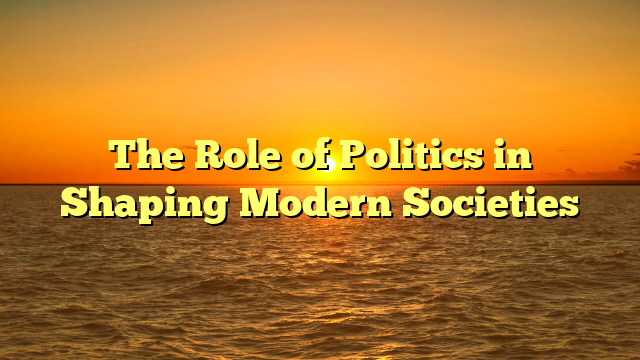Politics plays a central role in the development and organization of societies. It is through politics that governments are formed, laws are created, and policies are implemented to regulate various aspects of human life. At its core, politics is the process of making collective decisions that affect the lives of people within a community, state, or nation. While politics can often be viewed as complicated or controversial, it remains one of the most important mechanisms for maintaining order, promoting justice, and diponegoro4d ensuring progress.
One of the primary functions of politics is governance. Governments exist to provide structure and leadership for their citizens. Through political systems, countries decide how resources are distributed, how conflicts are resolved, and how the rights of individuals are protected. For example, democratic systems emphasize representation and participation, allowing citizens to have a voice in decision-making through elections. On the other hand, authoritarian systems concentrate power in the hands of a few, often limiting freedoms in the name of stability. Both systems, however, demonstrate the fundamental role politics plays in shaping how societies are governed.
Another crucial aspect of politics is the formulation of laws and policies. Political institutions create legal frameworks that define acceptable behavior and outline consequences for violations. These laws are essential for ensuring social order, protecting citizens, and creating a sense of justice. Moreover, policies crafted through political debate address pressing issues such as healthcare, education, environmental protection, and economic development. Political leaders are often judged by how effectively they address these concerns and improve the quality of life for their citizens.
Politics also serves as a platform for debate and negotiation. Societies are diverse, with individuals holding different beliefs, values, and interests. Politics provides a structured way to manage these differences through dialogue and compromise. For instance, debates in parliaments or congresses allow competing ideas to be presented and scrutinized before decisions are made. This process, though sometimes slow and contentious, ensures that multiple perspectives are considered in the pursuit of fair solutions.
However, politics is not without challenges. Corruption, partisanship, and power struggles can undermine the integrity of political systems. In many cases, political leaders may prioritize personal or party interests over the common good, leading to distrust among citizens. Additionally, misinformation and polarization in modern media have made it more difficult for people to engage in constructive political discussions. These issues highlight the need for transparency, accountability, and civic education to strengthen political systems.
Despite these challenges, politics remains essential for addressing global issues that transcend national borders. Problems such as climate change, international security, and economic inequality require cooperation among nations. Political diplomacy and international organizations provide avenues for countries to collaborate, negotiate, and create solutions to these shared challenges. In this sense, politics is not only about domestic governance but also about fostering peace and cooperation at a global level.
In conclusion, politics is a vital force that shapes modern societies by providing governance, creating laws, and enabling debate. While it faces many challenges, its importance cannot be overstated. Citizens, therefore, have a responsibility to engage with politics—whether by voting, staying informed, or participating in civic activities. By doing so, they contribute to building political systems that are more just, inclusive, and responsive to the needs of society. Ultimately, politics is not just about leaders or institutions; it is about people working together to create a better future.
